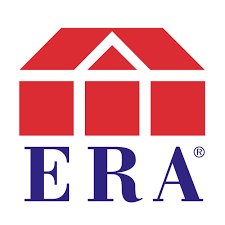era

n. 时代;年代;纪元
n. (Era)人名;(意、芬、印)埃拉
n.
纪元,年代;历史时期,时代;重大事件;
变形
复数:eras
双语释义
n.(名词)[C]纪元 a set of years which is counted from a particular point in time
[C]历史时期,时代 period in history marked by an important event or development
英英释义
era[ 'iərə, 'εərə ]
n.
a period marked by distinctive character or reckoned from a fixed point or event
同义词:epoch
a major division of geological time; an era is usually divided into two or more periods
同义词:geological era
(baseball) a measure of a pitcher's effectiveness; calculated as the average number of earned runs allowed by the pitcher for every nine innings pitched
同义词:earned run average
词汇搭配
用作名词 (n.)
动词+~
bring in an era迎来一个时代
create〔open up〕 an era开创〔开辟〕一个时代
形容词+~
transitional era过渡时期
the Christian〔Common〕 era公元
the Elizabethan〔Victorian〕 era伊丽莎白〔维多利亚〕女王时代
介词+~
before the Christian E-公元前
~+介词
era of …时代
词组短语
new era新纪元报
the contemporary era当代
cenozoic era新生代
mesozoic era中生代
christian era公元;基督纪元
palaeozoic era古生;古生代
paleozoic era古生代
current era当今时代
proterozoic era元古代;原生代
cainozoic era新生代
同近义词辨析
times, epoch, age, era, period这组词都有“时期、时代”的意思,其区别是:
times侧重某一特定时期。
epoch正式用词,侧重指以某重大事件或巨大变化为起点的新的历史时期。
age常指具有显著特征或以某杰出人物命名的历史时代或时期。
era书面语用词,指历史上的纪元、年代,可与epoch和age互换,侧重时期的延续性和整个历程。
period最普通用词,概念广泛,时间长短不限,既可指任何一个历史时期,又可指个人或自然界的一个发展阶段。
双语例句
用作名词(n.)
Concorde inaugurated new era in aeroplane travel.
协和式飞机开创了空中旅行的新纪元。
His death marked the end of an era.
他的死标志著一个时代的结束。
We are living in the computer era.
我们正生活在计算机时代。
It's an era of the miniskirt in the seventies.
七十年代是超短裙时代。
It was a confusing, yet lively era.
它是混乱的,也是活跃的年代。
权威例句
Silicon Processing for the VLSI EraSilicon Processing for the VLSI Era
MERRA: NASA’s Modern-Era Retrospective Analysis for Research and Applications
Parkinson's disease: progression and mortality in the L-DOPA era.
Epidemiology of Drug Resistance: Implications for a Post—Antimicrobial Era
The Snark is a Boojum: the continuing problem of drug resistance in the antiangiogenic era
Percutaneous coronary intervention in the current era compared with 1985-1986: the National Heart, Lung, and Blood Institute Registr...
Outcomes of Left Ventricular Assist Device Implantation as Destination Therapy in the Post-REMATCH Era Implications for Patient Sele...
Survival Effect of Maximal Cytoreductive Surgery for Advanced Ovarian Carcinoma During the Platinum Era: A Meta-Analysis
Impact of Completeness of Percutaneous Coronary Intervention Revascularization on Long-Term Outcomes in the Stent Era
era
era: [17] In ancient Rome, small discs or tokens made of ‘brass’ (Latin aes, a descendant, like English ore [OE], of Indo-European *ajes) used for counting were known as area. In due course this developed the metaphorical meaning ‘number as a basis for calculation’, and from around the 5th century AD it came to be used in Spain, North Africa, and southern Gaul as a prefix for dates, some what analogous to modern English AD.By extension it was then applied to a ‘system of chronological notation, as dated from a particular event or point in time’, the sense in which English acquired the word. The more general ‘historical period’ is an 18thcentury semantic development.=> ore
era (n.)
1716, earlier aera (1610s), from Late Latin aera, era "an era or epoch from which time is reckoned" (7c.), probably identical with Latin aera "counters used for calculation," plural of aes (genitive aeris) "brass, copper, money" (see ore, also compare copper). The Latin word's use in chronology said to have begun in 5c. Spain (where the local era, aera Hispanica, began 38 B.C.E.; some say because of a tax levied that year). Other ancient eras included the Chaldean (autumn of 311 B.C.E.), the Era of Actium (31 B.C.E.), of Antioch (49 B.C.E.), of Tyre (126 B.C.E.), the Olympiadic (July 1, 776 B.C.E.) and the Seleucidan (autumn 312 B.C.E.). In English it originally meant "the starting point of an age" (compare epoch); meaning "system of chronological notation" is from 1640s; that of "historical period" is from 1741, as in the U.S. Era of Good Feeling (1817) was anything but.
1. His death marked the end of an era.
他的死标志着一个时代的结束.
-- 来源 -- 英汉 - 辞典例句
2. An entirely new era, the era of knowledge economy, is beckoning us on.
一个崭新的知识经济时代正在召唤我们继续前进。
-- 来源 -- 英汉 - 辞典例句
3. Many of the entrepreneurial figures connected with the earlier era had already departed.
许多与过去的年代相联系的企业家已去世。
-- 来源 -- 英汉 - 辞典例句
4. Mammals arose from a fairly primitive reptile in the Mesozoic era.
哺乳类起源于中生代宛若原始的爬虫类。
-- 来源 -- 英汉 - 辞典例句
5. Advanced figures are emerging in multitude in this era of ours.
在我们这个时代先进人物正在大量地涌现出来。
-- 来源 -- 英汉 - 辞典例句
6. It marks the beginning of a new era in human history.
这标志着人类历史新纪元的开始。
-- 来源 -- 英汉 - 辞典例句
7. Reading opened a new era in my life.
阅读把我的生命引进了新时代。
-- 来源 -- 英汉 - 辞典例句
8. Originating or existing during the same period; lasting through the same era.
同时代的在相同的时期发生或存在的;经历相同时代的
-- 来源 -- 英汉 - 辞典例句
9. In social terms the modern era contradicted the moral idea to which Americans were attached.
从社会角度说,现代和美国的道德观念大相径庭。
-- 来源 -- 英汉 - 辞典例句
10. It is only natural for us to try to draw the imagery and language of an earlier era that we are comfortable with into a new, less certain one.
很自然地,我们总是试图用较早时代的语言和比喻来描述不确定的新时代。
-- 来源 -- About Face 3交互设计精髓
